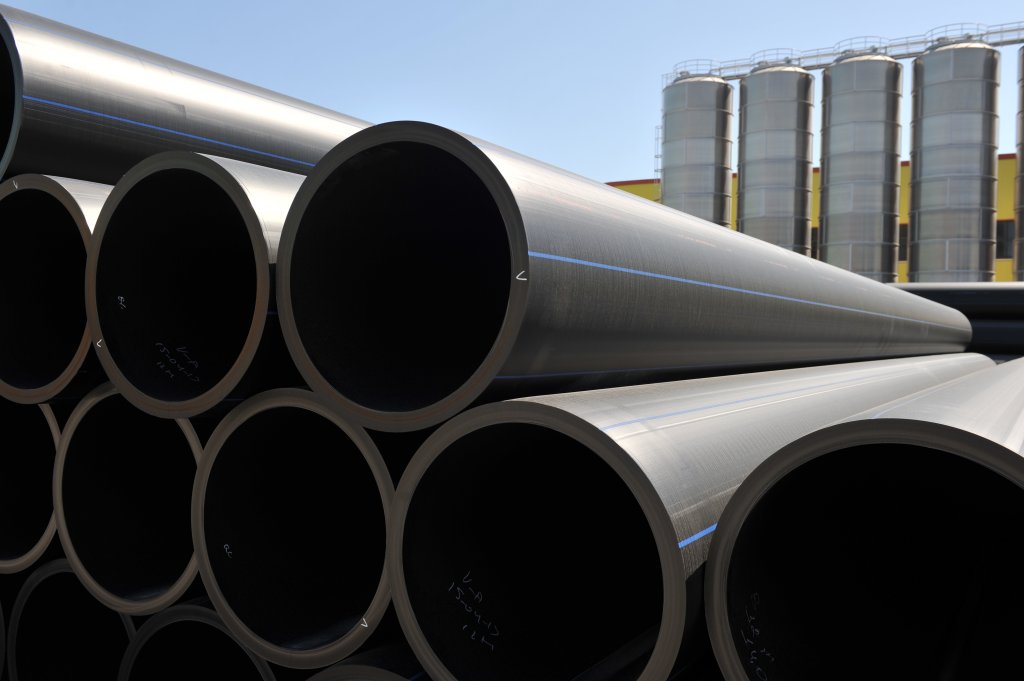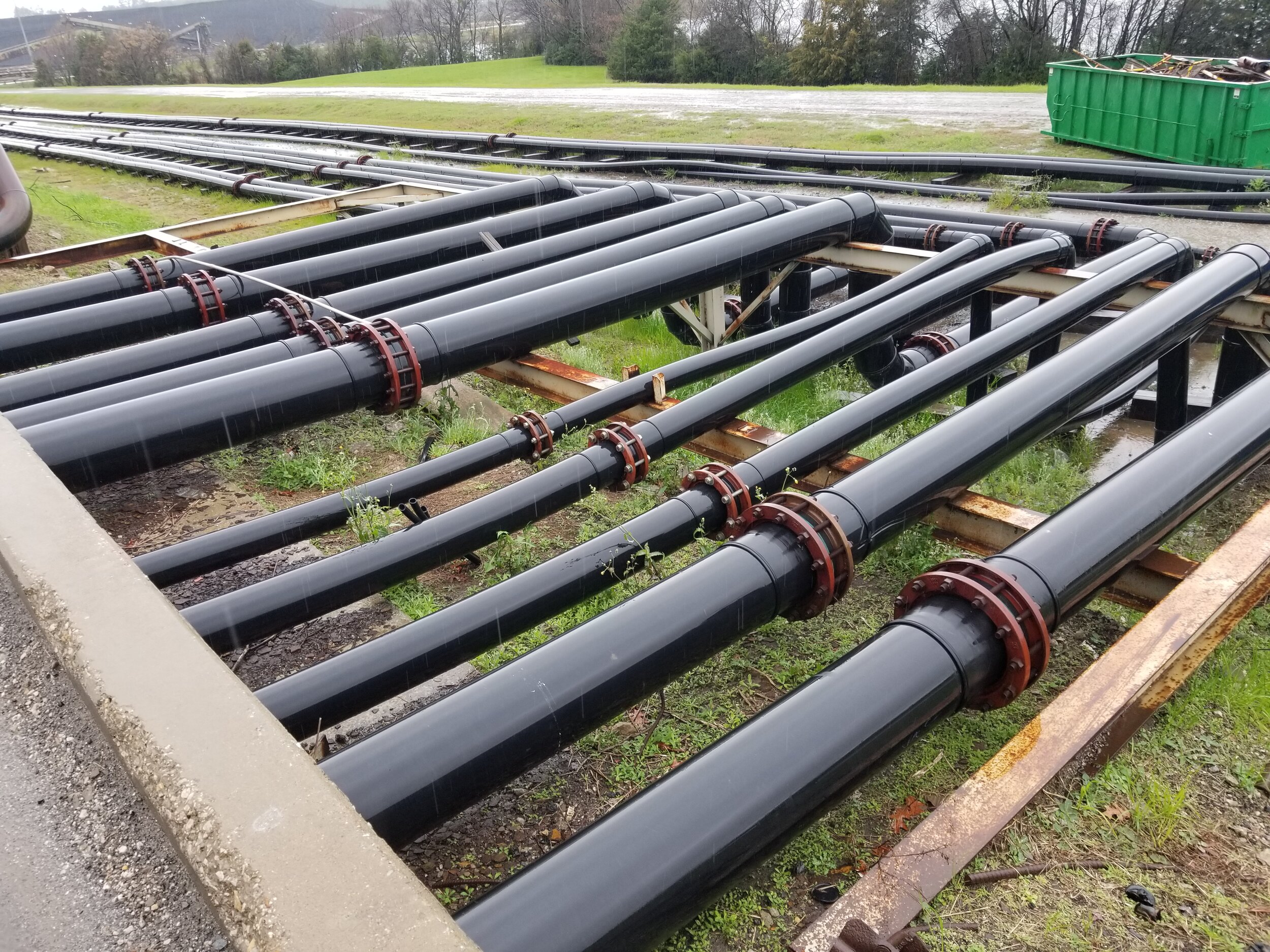A Comprehensive Guide to the Numerous Uses HDPE Pipeline in Building And Construction and Sector
HDPE pipes have become a pivotal element in contemporary building and commercial applications. Their special properties, such as resistance to corrosion and lightweight layout, make them appropriate for a variety of uses. From water system systems to agricultural irrigation, HDPE pipelines offer solutions that boost performance and sustainability. Understanding their varied applications is vital for specialists looking to maximize infrastructure. What particular advantages do these pipes give each sector?
Water and Distribution Equipments
Supply of water and circulation systems are essential components of metropolitan facilities, frequently counting on high-density polyethylene (HDPE) pipes for their longevity and efficiency. These systems transportation potable water from therapy centers to customers, making sure ease of access and safety. HDPE pipelines are preferred for their resistance to deterioration, chemicals, and extreme temperatures, which enhances their long life and minimizes maintenance prices. Additionally, their light-weight nature allows for much easier installment and transportation, making them ideal for different metropolitan and country applications.
The adaptability of HDPE pipes enables them to be mounted in limited spaces and around obstacles, minimizing the demand for substantial excavation (hdpe pipe fittings Midland TX). In addition, their smooth indoor surface decreases friction losses, improving water flow rates. As cities remain to expand, the need for dependable supply of water systems increases, positioning HDPE pipelines as a lasting remedy for contemporary facilities tasks. Their tested track document makes them a recommended choice amongst designers and city organizers alike
Wastewater Monitoring and Treatment
Effective wastewater administration and treatment are necessary for preserving public health and environmental top quality. HDPE pipelines play an essential role in this process due to their sturdiness, resistance to rust, and capacity to stand up to harsh chemicals. These pipes are typically utilized in different applications, including sewage systems, stormwater drainage, and wastewater treatment facilities. Their lightweight nature facilitates less complicated setup and transport, lowering labor expenses and time.
Additionally, HDPE pipes have a smooth interior surface area that lessens friction loss, advertising reliable circulation rates. They are also much less vulnerable to leakages and failings contrasted to traditional products, ensuring that impurities are consisted of efficiently. Their adaptability allows for flexibility in numerous dirt conditions, making them ideal for varied ecological settings. As industries increasingly focus on lasting techniques, making use of HDPE pipes in wastewater monitoring systems straightens with objectives for reducing ecological influence and improving source healing.
Agricultural Irrigation Solutions
In agricultural setups, effective watering services are important for maximizing crop returns and managing water sources. HDPE (High-Density Polyethylene) pipelines play an essential function in modern irrigation systems as a result of their toughness, flexibility, and resistance to rust. Their capability to stand up to high stress makes them optimal for both surface area and subsurface irrigation applications, making sure uniform water distribution throughout fields.
Farmers can make use of HDPE pipes in drip irrigation systems, which deliver water straight to plant origins, minimizing wastage and advertising healthy growth. In addition, these pipes are lightweight and very easy to install, decreasing labor costs and installment time. Their long life-span and reduced upkeep demands further boost their allure in agricultural techniques.
HDPE pipelines are environmentally friendly, as they can be recycled and do not seep damaging chemicals right into the dirt. This makes them a sustainable choice for farmers intending to embrace environmentally friendly agricultural methods while making best use of productivity.
Industrial Applications and Processes
Flexibility is a hallmark of HDPE pipes, making them indispensable in various commercial applications and procedures. These pipelines are commonly made use of in chemical handling markets as a result of their superb resistance to a wide variety of harsh substances. HDPE's light-weight nature, incorporated with high tensile toughness, enables official source simple setup and lasting efficiency popular environments.
In the oil and gas field, HDPE pipelines play an essential role in moving hydrocarbons and gases, thanks to their toughness and flexibility - hdpe pipe fittings Midland TX. Additionally, they are utilized in mining procedures for the transportation of slurry and various other materials, where conventional piping systems may fall short
In addition, HDPE pipelines are increasingly made use of in producing facilities for water supply lines and wastewater monitoring. Their ability to hold up against extreme temperature levels and pressures makes them ideal for a variety of commercial processes. Overall, HDPE pipes contribute substantially to performance and security throughout diverse commercial applications.
Stormwater Management and Water Drainage Systems
Stormwater monitoring and water drainage systems are essential parts in metropolitan infrastructure, developed to manage excess rainfall and minimize flooding threats. High-density polyethylene (HDPE) pipes are increasingly used in these systems due to their sturdiness, versatility, and resistance to corrosion. These pipelines successfully deliver stormwater far from populated locations, minimizing surface drainage and avoiding waterlogging.
HDPE's light-weight nature promotes easier setup, lowering labor expenses and building and construction time. Additionally, its resistance to chemicals and ecological stressors guarantees longevity and integrity in different environments. In enhancement to typical drain applications, HDPE pipes are additionally used in ingenious services such as environment-friendly facilities, which consists of rain yards and absorptive sidewalks.

Regularly Asked Concerns
How Does HDPE Pipe Contrast to PVC Pipeline in Expense?
As a whole, HDPE pipeline often tends to be extra pricey than PVC pipeline as a result of its boosted resilience and adaptability. Lasting cost factors to consider, such as maintenance and life-span, might prefer HDPE in details applications.
What Is the Life-span of HDPE Piping Under Numerous Conditions?
HDPE pipes normally have a life-span of 50 to 100 years, click this link depending on environmental conditions, installation practices, and usage. Elements such as temperature level, soil type, and exposure to chemicals can greatly affect their longevity.
Can HDPE Pipes Be Recycled After Usage?
Yes, HDPE pipes can be reused after usage. The recycling procedure involves melting down the product, permitting it to be repurposed into brand-new products, thus promoting sustainability and decreasing environmental effect connected with plastic waste.
Exist Any Specific Setup Challenges With HDPE Pipes?
Installation challenges with HDPE pipelines consist of correct jointing methods, guaranteeing sufficient trench conditions, and taking care of thermal development. In addition, competent labor is needed to take care of specialized tools, which can make complex the setup procedure in numerous atmospheres.

What Qualifications Should I Try To Find When Purchasing HDPE Water Lines?
When buying HDPE pipes, one need to try website here to find accreditations such as ASTM, AASHTO, and ISO, which validate quality and compliance with industry standards, guaranteeing longevity and performance in numerous applications. - American Plastics HDPE Pipe Manufacturing